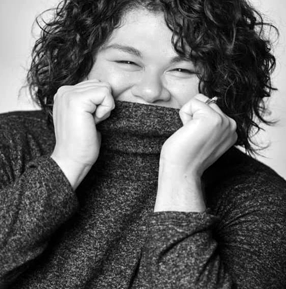Fractured
My grandmother is only one day
into her infirmity and doped up
on Morphine. Her shoulder is immobile
beneath layers of plaster.
Her eighty-five-year-old frame droops
from the weight of it.
My mother confesses:
she cannot take care of her mother.
I am not she says a nursemaid.
My mother is angry. Angry
at my sister who didn’t give enough
support, angry at my grandmother
for shuffling her feet, angry even
at the dog that was tucked beneath
my grandmother’s arm
as they all three tried to squeeze
into the door of the vet’s office.
She calls me from the emergency room
to say that grandmother fractured her shoulder
in three places. She’s become an invalid
overnight, she says. My sister calls her cruel
for refusing to run the bathwater, refusing
to wash my grandmother’s naked body, for
not even considering renting
a wheelchair for her to move from place
to place. When grandmother whispers
that she is afraid to walk, my mother
tells her that there’s nothing wrong with
her legs, tells her she’ll have to go to a
nursing home if she won’t walk
to the bathroom: one piss in the bed is
understandable, two is teetering too
close to in-home care.
My sister does not understand that there
is too much to overcome between them—
always the memory of the black dress
grandmother refused to wear
on the day of her husband’s funeral—
the way she turned to my mother and said,
I am not in mourning.
Copyright © 2019 by Hali Sofala-Jones. Originally published in Poem-a-Day on September 6, 2019, by the Academy of American Poets.
“The situation of the poem is fairly autobiographical, and I chose to write about it because of the complicated nature of family dynamics, especially mother-daughter relationships, which are often steeped in histories and emotional trauma that are never fully known to the generations that follow or even to the persons involved. In this case, the persons were my mother and my maternal grandmother, and I wanted this poem to illustrate the complex nature of their relationship that disallows easy labeling or the placing of blame.”
—Hali Sofala-Jones

